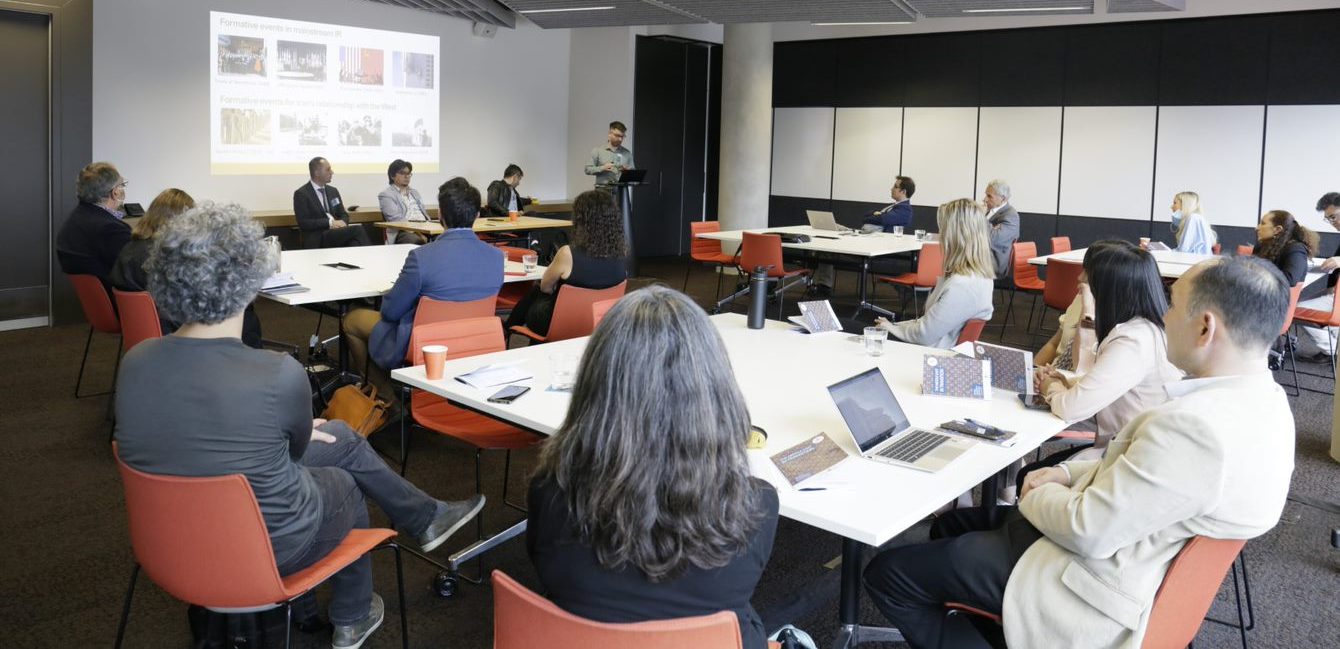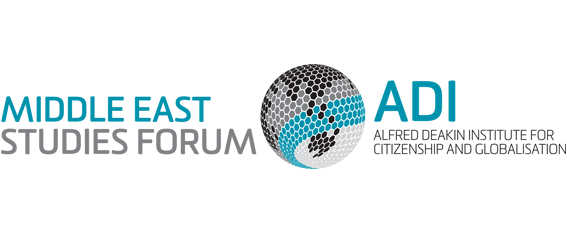
On 5 December 2022, a diverse group of scholars from all corners of the academy gathered for our first face-to-face conference in more than three years, to take stock of how much had changed in the Middle East in such a short time.
MESF convener Prof Shahram Akbarzadeh opened the conference, highlighting achievements in Middle East scholarship at the Alfred Deakin Institute, while conference organiser Dr James Barry discussed the theme of the conference, and the importance of the contribution of the scholars present in creating understanding in the current uncertain environment.
The presentations were inaugurated by the keynote address of Dr Sarah Phillips of the University of Sydney, who spoke in depth on her research about local Middle Eastern perspectives of insurgent groups like ISIS and AL-Qa’ida as “relatively mundane offshoots of state power”, and how Western security thinking fails to holistically account for, and ultimately defeat, insurgent terrorist groups.
The day was splint into seven panels, six of which were run concurrently.
The first two panels covered cultural developments, economic crisis and issues of sovereignty in the Middle East. Highlights included a detailed analysis of Middle Eastern state’s engagement with diaspora youth by our international guest, Dr Ayca Arkilic of the Victoria University Wellington, and an outline of the economic situation of non-oil producing Middle Eastern states by Dr Anais Iqtait of ANU.
The third and fourth panels dealt with reconstruction after conflict and the resilience of civil society in the face of ongoing state repression. Highlights included an examination of the situation for Assyrian Christians in Iraq by Dr Daniel Tower of the University of Sydney, and a presentation by Dr Marika Sosnowski of GIGA Hamburg of her soon to be published work on the settlement of status in Syria.
The fifth and sixth panels took the discussion to current developments geopolitics and national strategies in the Middle East. Dr Niamatullah Ibrahimi and Dr Abbas Farasoo gave a detailed explanation of US policy shifts relating to the Taliban while Deakin’s own Neda Zeyghami presented a logitidinal analysis of Iranian foreign policy decision making in relation to Russia.
Finally, the conference came back together for the final panel on the future of the Middle East. Former Australian diplomat Dr Bob Bowker closed the session with his reflections on how to engage the region based on his more than five decades of diplomatic experience.
The conference was a fresh and lively gathering of scholars who provided an enthusiastic exchange of idea and ideals after three long years of online conferences. Despite the challenging topics, the overall mood of the conference was positive and ended on a note of optimism.

